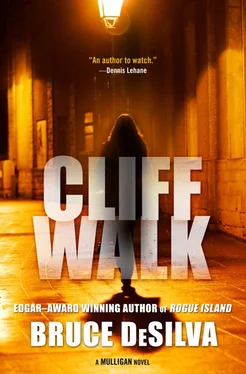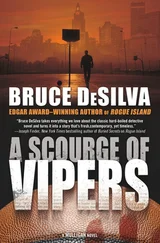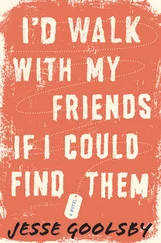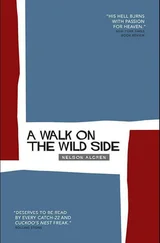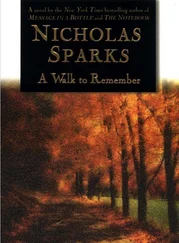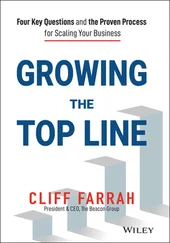First thing Monday morning, I was awakened again by the sound of Don Henley’s thin tenor.
“Mulligan.”
“I need you to come in early today,” Lomax said.
“Check your schedule. It’s my day off.”
“You never take a day off.”
“Well, I am today.”
“It’s important.”
“Tough shit,” I said, and clicked off.
Naturally, he called right back.
“I’ll pay overtime.”
“Not interested.”
“Pieces of another kid have turned up at Scalici’s farm,” he said.
“Send somebody else.”
“I don’t have anybody else.”
“Not my problem.”
“Mulligan?”
“Yeah?”
“The cops think it’s Julia Arruda.”
* * *
The scene at the farm was all too familiar: a small lump under a blue tarp, detectives pawing through a pile of garbage, Parisi inside the farmhouse talking with Scalici. I took notes, going through the motions, but my heart wasn’t in it.
That evening, Parisi called to say his detectives had found some bits of human skull in the garbage. They looked as if they’d been smashed into fragments with a hammer. So much for the mystery of what the child killers were doing with the heads.
That evening I found Fiona hunched at her usual table at Hopes, drinking beer with Anne Kotch, an assistant attorney general. I got myself a club soda from the bar, strolled over, and joined them.
“Would you mind giving Mulligan and me a few minutes?” Fiona said, so Anne got up and claimed a stool at the bar.
“I’m glad you showed,” Fiona said. “I could use a friendly shoulder.”
“How come?”
“I handled the Arruda notification myself.”
“Why put yourself through that? The state cops could have done it.”
“I owed it to the parents.”
“Must have been awful.”
“Worse than you know.”
Fiona’s lower lip quivered, and I noticed then she was wearing lipstick. Her shoulders shook, and she began to weep. I got up, stood behind her chair, wrapped her up in a hug, held her until the shaking stopped, and then sat down again across from her.
“That was one hell of a story yesterday morning,” she said.
“Thanks.”
“Probably earn you a big journalism prize you can hang on your wall.”
“I don’t much care about that.”
“Well, you should. You earned it. You did a brilliant job figuring everything out.”
“Not really,” I said. “After all, you figured it out first.”
“What are you talking about?”
“You know exactly what I’m talking about.”
“Think you know the rest of it, do you?”
“I do.”
“Tell me what you think you know.”
“You did your own research on Sal weeks ago and learned he was a big donor to child protection groups.”
“I might have.”
“And you went to the New Haven Public Library, dug into Puglisi’s past, and learned what happened to his sister.”
“So what if I did?”
“Once you had all that, it wasn’t much of a leap to guess Sal was the one behind the hits on the child pornographers.”
“Go on.”
“It was around that time that I told you my suspicions about Wayne.”
“I remember.”
“There were only two other people who knew Wayne might be dirty,” I said. “One of them was the source I got it from, and I know for a fact he didn’t tell anybody else. The other was Wayne’s secretary, and she’s way too naïve to have done anything with the information.”
“So?”
“So after I told you my suspicions, you passed them on to Sal.”
“Why would I do that?”
“Because you couldn’t touch Wayne legally. You didn’t have enough to get a warrant for his computers.”
Fiona raised her beer to her lips and discovered the can was empty. I got up, walked to the bar, and fetched her another. She took it from my hand and drank deeply.
“Is Vanessa going to continue her father’s crusade?” I asked.
“Let’s say I have reason to believe she will.”
“Going to hunt down the child pornographers who are still on the loose, is she?”
“And maybe the child porn fans we found on the computers at Chad Brown,” Fiona said.
“The four who haven’t been shot yet, you mean.”
“Those would be the ones.”
“Wow,” I said.
Fiona closed her eyes for a moment, and I saw her lips moving. Perhaps she was saying a prayer. When she was done, she rested her arms on the table, leaned forward, and looked into my eyes.
“We live in God’s beautiful world,” she said, “but there is evil abroad in it. Monsters are hunting our children. I don’t seem to be very good at catching them, and neither are the state police. Maybe it’s a good thing that there are others who hunt the hunters.”
“And do God’s murderous work?” I asked.
She didn’t have anything to say to that.
“I can’t fucking believe this,” I said.
“Neither will anybody else, Mulligan. Besides, you can’t prove any of it.”
“If I worked at it, maybe I could.”
“Might be worth it,” she said. “It would give you something to hold over the head of the next governor if you ever happen to need a favor.”
With that, I got up to go. At the door, I turned back for one last look. Her eyes were stone.
It was raining again when I stepped out of the bar and whistled for Secretariat. He didn’t come. By the time I tracked him down at an expired meter by Burnside Park, my old Boston Bruins jersey, the one with hockey god Cam Neely’s number 8 on it, was sopping. I slumped behind the wheel, tore the fucking thing off, and chucked it into the backseat. Then I cranked the ignition, let the engine idle for a few minutes, snapped the heater on, and felt a blast of cold air. I’d forgotten it had stopped working again three days ago.
I was sick to death of this rotten Rhode Island weather. I watched the rain fall and cursed John Ghiorse, Channel 10’s septuagenarian weatherman. Then I cursed God. I stopped cursing when it occurred to me that neither of them had anything to do with it.
I just sat there and listened to the rain tap the roof, thinking about how journalism used to be fun. I remembered how I used to sit courtside at Providence College and Brown University basketball games, stuff my face with hot dogs, and fill my notebook with words that made no mention of severed arms or missing children. I remembered coming to work every day to a newsroom filled with dedicated professionals who were in love with their jobs and never wanted to be anywhere else. I remembered when nearly everyone in the state spent at least a half hour every day reading the paper.
But that was a quarter of a lifetime ago, and those days were never coming back.
I was sick to death of layoffs, buyouts, and forced retirements. I was sick of Fiona’s crocodile tears, the pop of small-caliber handguns, and the candied stench of corpses. I was sick of decaf and club soda, of the gnawing in my gut that never completely went away, and of the child with no arms who still haunted my dreams. I was sick of people who found a way to justify murder, and of the undeniable fact that one of those people was me.
I was sick of feeling alone. I needed to wrap myself around somebody. I took out my cell and started to call Yolanda, but she was wrapped around somebody else.
I put the Bronco in gear and drove. I meant to go home. I really did. But on this night, Secretariat had a will of his own. As he rolled past the Cathedral of Saints Peter and Paul, its brick edifice dark and brooding, I thought about going inside. But I didn’t.
A passage from the Book of Job flashed through my mind: “When I looked for light, then came darkness.”
Читать дальше
